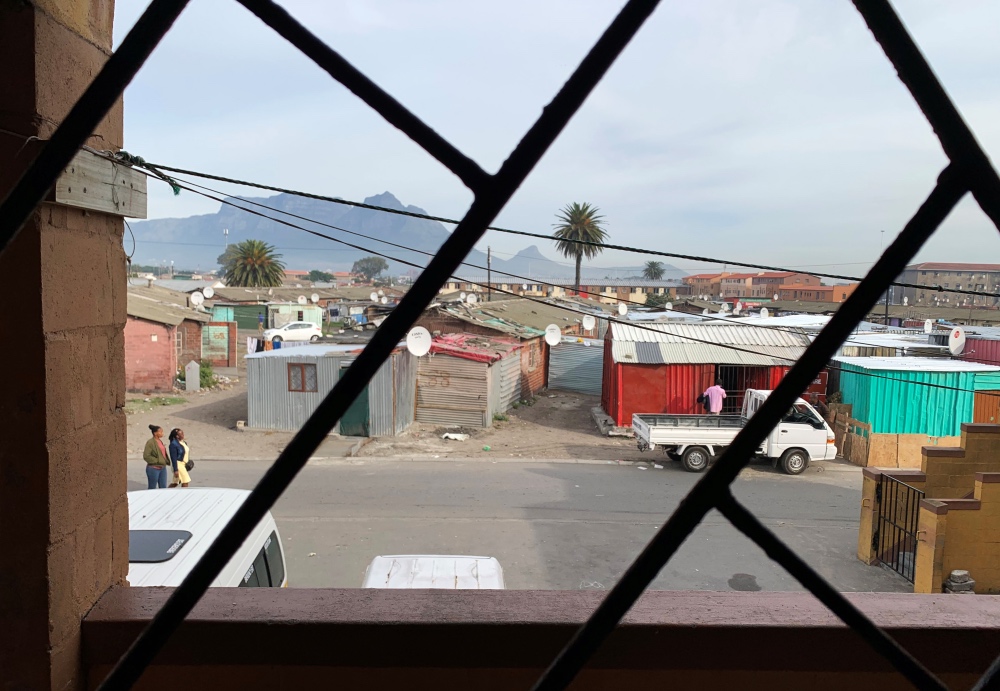Johannesburg, South Africa
Thomson Reuters Foundation
The coronavirus is hitting South Africa’s mainly black townships harder than areas that were once the exclusive preserve of white people, according to new data that highlights the lasting impact of apartheid-era housing policies.
More than two decades after the end of white minority rule, South Africa remains one of the most unequal countries in the world, according to the World Bank, with urban areas starkly divided along racial lines.

Shacks are seen through the doorway of domestic worker Alphonia Zali’s two roomed apartment, as authorities around the world impose various guidelines on lockdowns and social distancing to curb the spread of coronavirus disease in Langa township near Cape Town, South Africa, on 7th May. PICTURE: Mphakamisi Zali/Handout via Reuters
Townships in the Western Cape province, South Africa’s main coronavirus hotspot, are suffering particularly high rates of infection, government tracking shows.
Nearly 12 per cent of all infections in the Western Cape are in Khayelitsha, the largest township in Cape Town, even though it has just six per cent of the province’s population.
By contrast Stellenbosch, known for its winelands and a university town, has just one per cent of Western Cape’s cases and makes up about four per cent of its population.
Other hotspots include Mitchells Plain township, which has nine per cent of infections.
“We are seeing townships become virus hotspots because we haven’t dismantled the apartheid city,” said Edward Molopi, a researcher with housing and human rights charity the Socio-Economic Research Institute in Johannesburg.
South Africans have taken to the streets in recent weeks to protest police brutality in townships in an echo of the Black Lives Matter protests in the United States.
Human rights defenders have said security forces were deployed to enforce lockdowns mainly in poor black areas like high density townships, where higher population numbers and overcrowding made it impossible to properly isolate.
“COVID-19 has exposed the brutal inequality in South Africa,” said Chris Nissen, a commissioner from the South African Human Rights Commission, an independent watchdog.
“People say all lives should matter, but what about people in townships? Don’t their lives matter too?” said Nissen in a phone interview.
South Africa has more than 58,500 confirmed coronavirus cases, and 1,284 deaths according to a tally by the John Hopkins University.
The government is expecting an escalation of cases ahead of a predicted August/September peak and rising community infection rates in townships.
But it is struggling with shortages of test kits, healthcare staff and hospital beds.
The city of Cape Town has partnered with the Department of Water and Sanitation to distribute 41 million litres of water into informal settlements to aid handwashing to stem the virus spread.
“We remain committed to doing all we can to find solutions to challenges in serving our vulnerable residents,” said Alderman Limberg, a member of the city’s Mayoral Committee for Water and Waste in a press release.
Molopi said the virus had exposed how little had changed in South African cities since apartheid ended.
“During apartheid, black people had to live in sub-standard, crowded, unsanitary conditions, far from economic opportunity,” Molopi told the Thomson Reuters Foundation.
“Not much has changed.”






